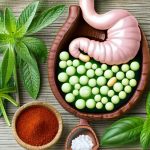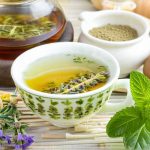For centuries, humans have turned to nature for remedies and support in maintaining overall health. This connection extends deeply into our dietary habits, including what we drink. Beyond water, beverages crafted from herbs offer a gentle yet powerful way to nurture our bodies. Herbal teas aren’t simply flavorful drinks; they represent a holistic approach to wellness, often incorporating traditions passed down through generations.
The digestive system is central to our wellbeing, impacting everything from nutrient absorption to immune function and even mental health. Many factors can disrupt its delicate balance – stress, diet, lifestyle choices, and environmental influences all play a role. Increasingly, people are exploring natural options to support healthy digestion, and herbal teas provide a readily accessible and often soothing avenue for doing so.
Understanding Digestion & Herbal Support
Effective digestion relies on a complex interplay of organs and processes. From the mechanical breakdown of food in the mouth to the absorption of nutrients in the small intestine, each stage is crucial. When this system becomes compromised – leading to bloating, gas, indigestion, or irregularity – it can significantly impact quality of life. Herbs have been traditionally used to address different aspects of digestive function, offering support for everything from easing discomfort to promoting regularity.
Herbal teas offer a gentle way to incorporate these supportive elements into your routine. They are often less harsh on the system than some conventional remedies and can be enjoyed as part of a broader wellness approach. It’s important to remember that individual responses to herbs can vary, so finding what works best for you is key.
Common Herbal Teas for Digestive Health
Many herbal teas have been linked to digestive benefits through traditional use and emerging research. Peppermint, chamomile, ginger, and fennel are among the most frequently utilized options. Each herb offers a unique profile of compounds that can influence different aspects of digestion. Understanding these differences allows you to select teas best suited to your specific needs or concerns.
Peppermint & Gas/Bloating Relief
Peppermint tea is arguably one of the most well-known herbal remedies for digestive discomfort. It contains menthol, which possesses antispasmodic properties that can help relax the muscles in the gastrointestinal tract. This relaxation can alleviate symptoms like bloating, gas, and indigestion. Peppermint may also ease feelings of nausea. However, it’s worth noting that peppermint might exacerbate acid reflux in some individuals, so caution is advised if you’re prone to heartburn.
Ginger & Nausea/Motility Support
Ginger has a long history of use for addressing digestive issues, particularly nausea and vomiting. Its active compounds, gingerols, are believed to help speed up gastric emptying – the rate at which food moves from the stomach to the small intestine. This can be beneficial for people experiencing slow digestion or feeling full quickly. Beyond its anti-nausea effects, ginger may also support healthy gut motility and reduce inflammation within the digestive tract.
Chamomile & Soothing Inflammation
Chamomile tea is renowned for its calming properties, but it extends beyond emotional wellbeing to offer benefits for digestive health as well. It contains compounds that can help soothe inflammation in the gastrointestinal tract, reducing discomfort associated with conditions like irritable bowel syndrome (IBS) or inflammatory bowel disease (IBD). Chamomile also possesses mild antispasmodic effects, potentially easing cramping and muscle spasms within the digestive system. Regularly sipping chamomile tea may contribute to a sense of calm which indirectly benefits digestion as stress can often negatively impact gut function.
Ultimately, herbal teas are valuable tools that can be incorporated into a holistic approach to digestive wellness. They offer a gentle, natural way to support healthy digestion and address common discomforts. However, it’s crucial to remember that these teas aren’t replacements for medical care or a balanced lifestyle. A well-rounded diet, regular exercise, stress management techniques, and adequate hydration are all essential components of a thriving digestive system. Exploring herbal teas can be a complementary step towards achieving greater wellbeing, but always listen to your body and consult with a healthcare professional if you have any underlying health conditions or concerns.


















